Investigating CSR Implementation in Malaysian Construction Companies
VerifiedAdded on 2020/04/21
|7
|1326
|157
Report
AI Summary
This report delves into the significance of Corporate Social Responsibility (CSR) within the Malaysian construction sector, highlighting its importance in an economic framework. It addresses the sector's unique challenges, including a workforce often characterized by low levels of education and income. The report discusses the increasing environmental awareness and societal demand for better welfare, while acknowledging the lack of CSR implementation in Malaysia's construction sector despite government initiatives. It explores the reluctance of top management to embrace environmental and sustainability requirements, as well as financial constraints, particularly for small firms. The report investigates the gap between Malaysian companies and their global counterparts in CSR, focusing on environmental and workplace aspects. It poses key research questions regarding the relationship between CSR implementation and firm performance, the sector's shortcomings compared to the global scenario, cost-effectiveness, limitations, and government policies. The objectives include investigating the relationship between CSR activities and sales dynamics, analyzing the cost and benefit of CSR, and examining the positive and negative externalities caused by CSR implementation. The report aims to study the factors in the CSR itself, which affects the overall performances of the Public Listed Companies in the construction sector of the country, and how these cause and effect relationships work.
1 out of 7
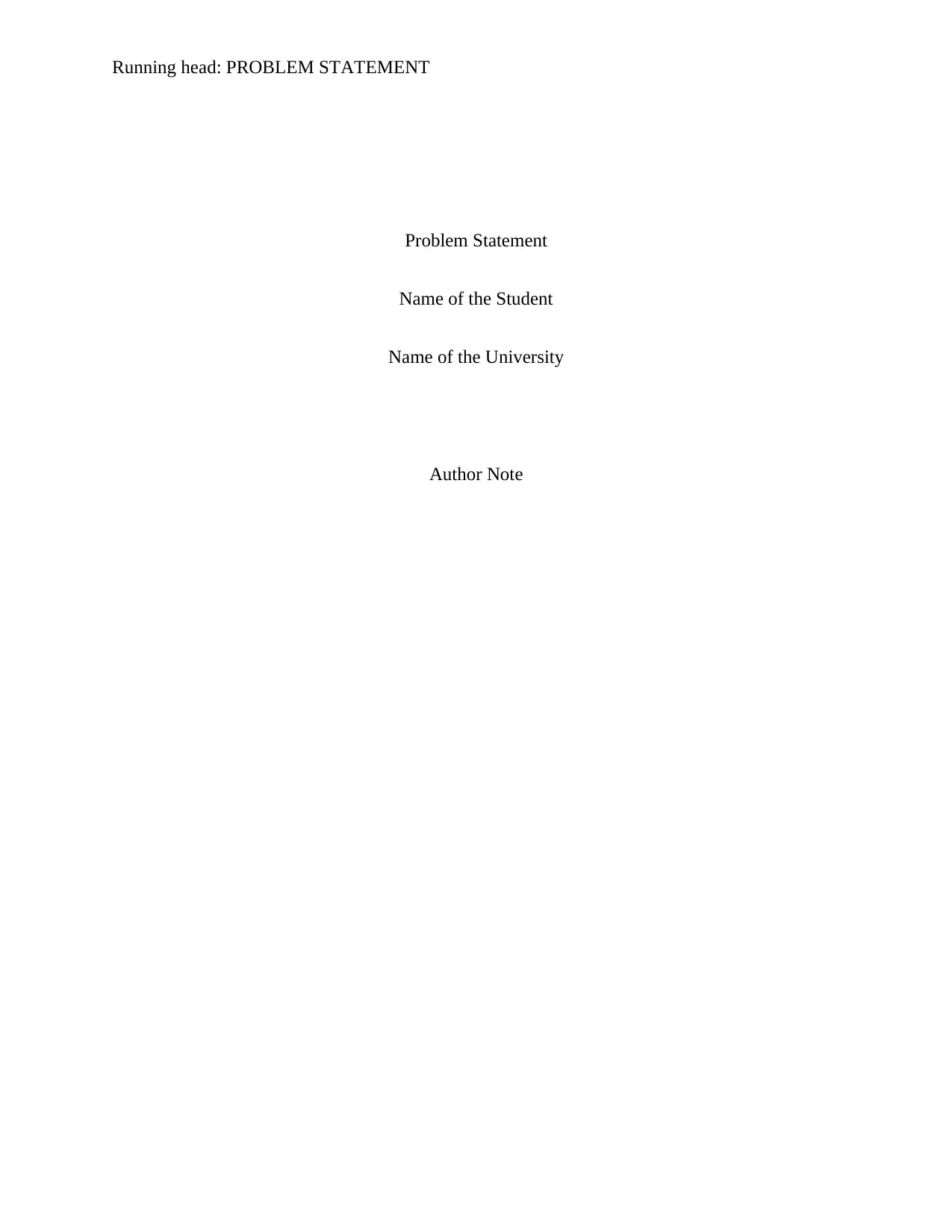
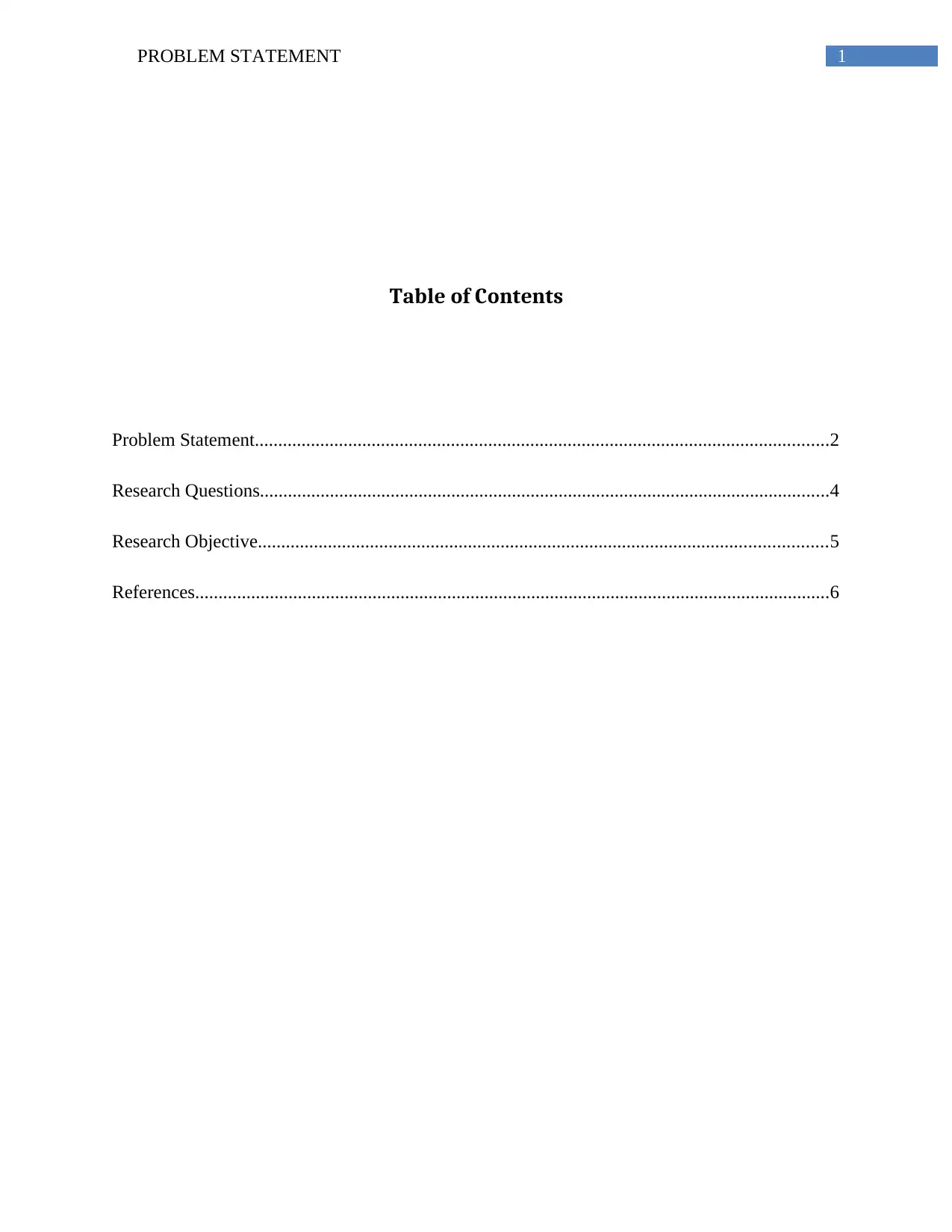
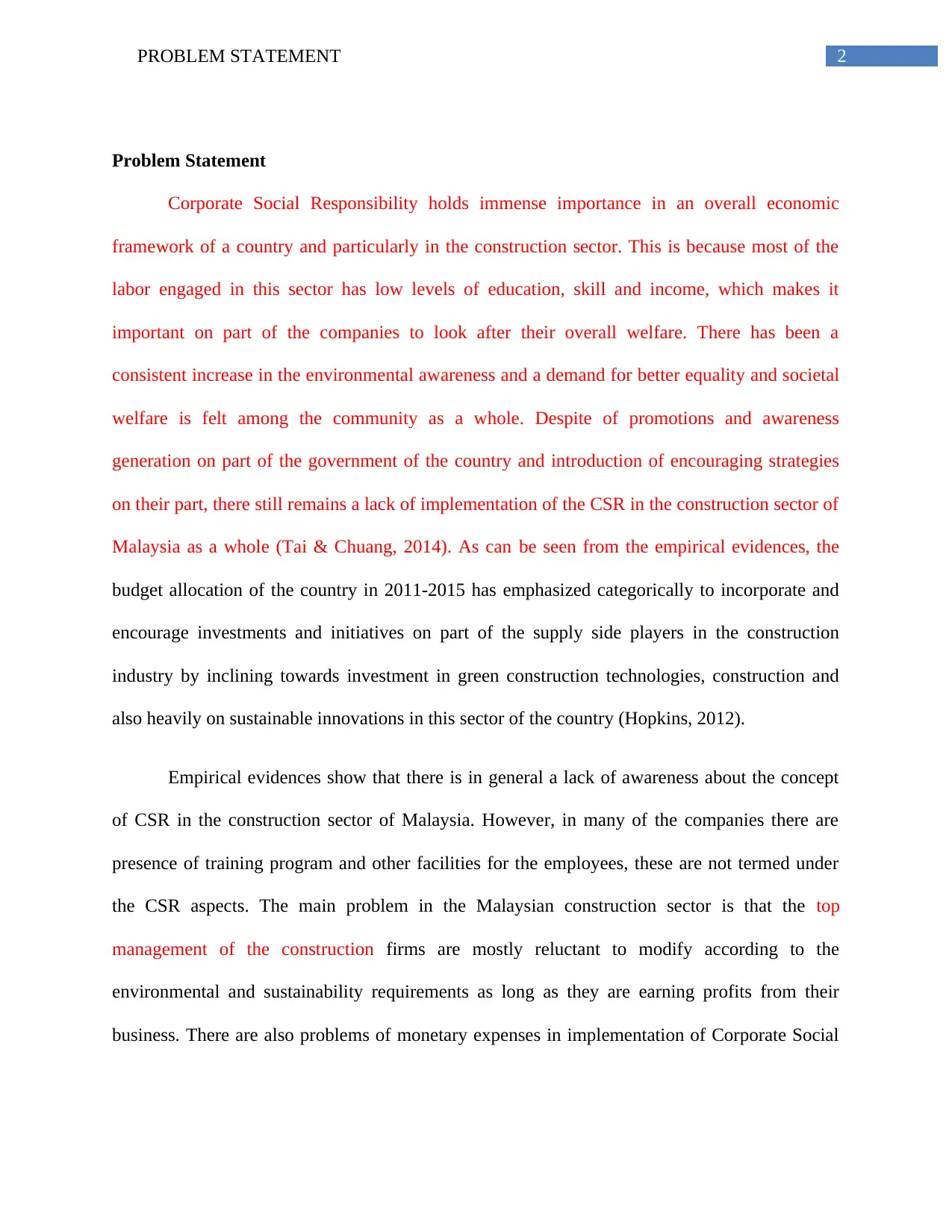

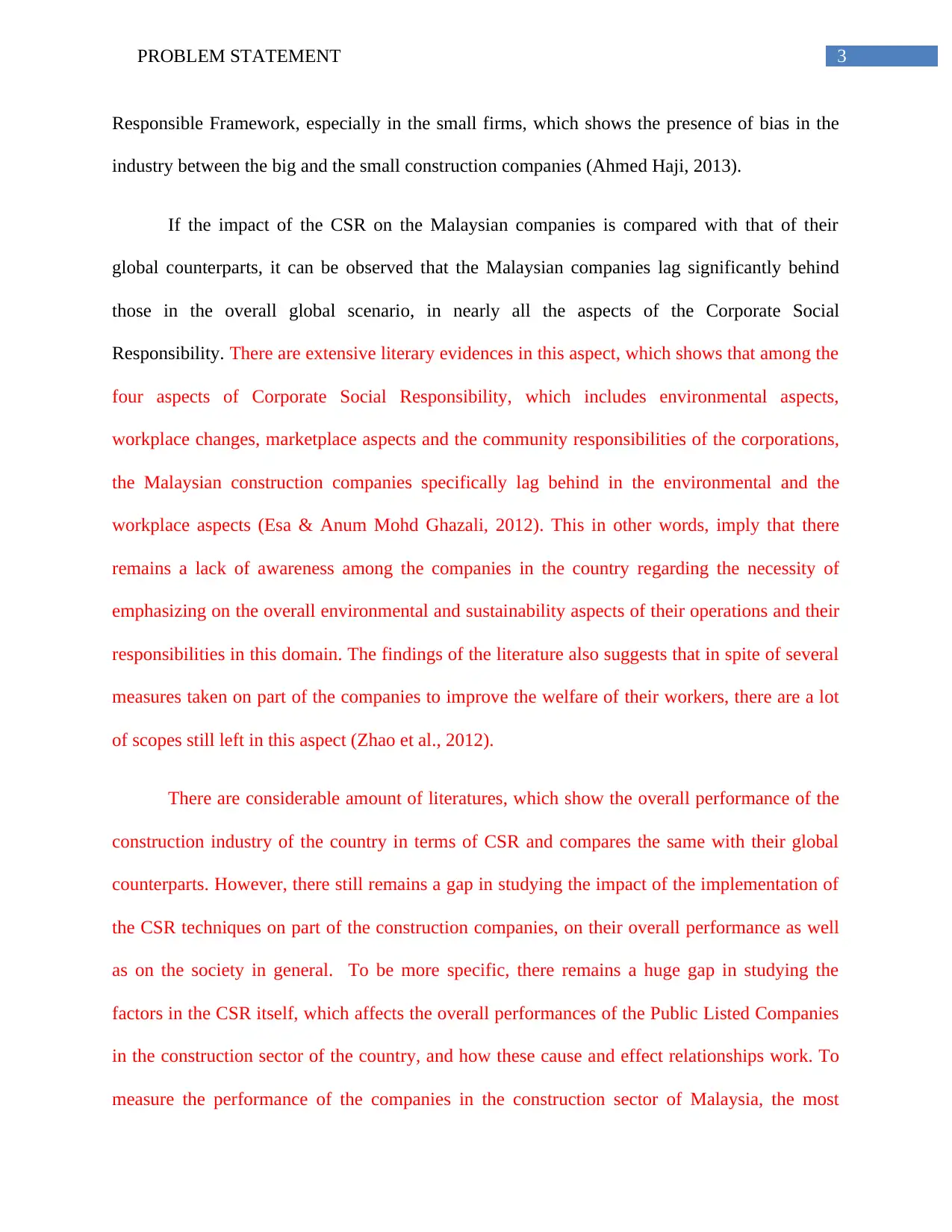
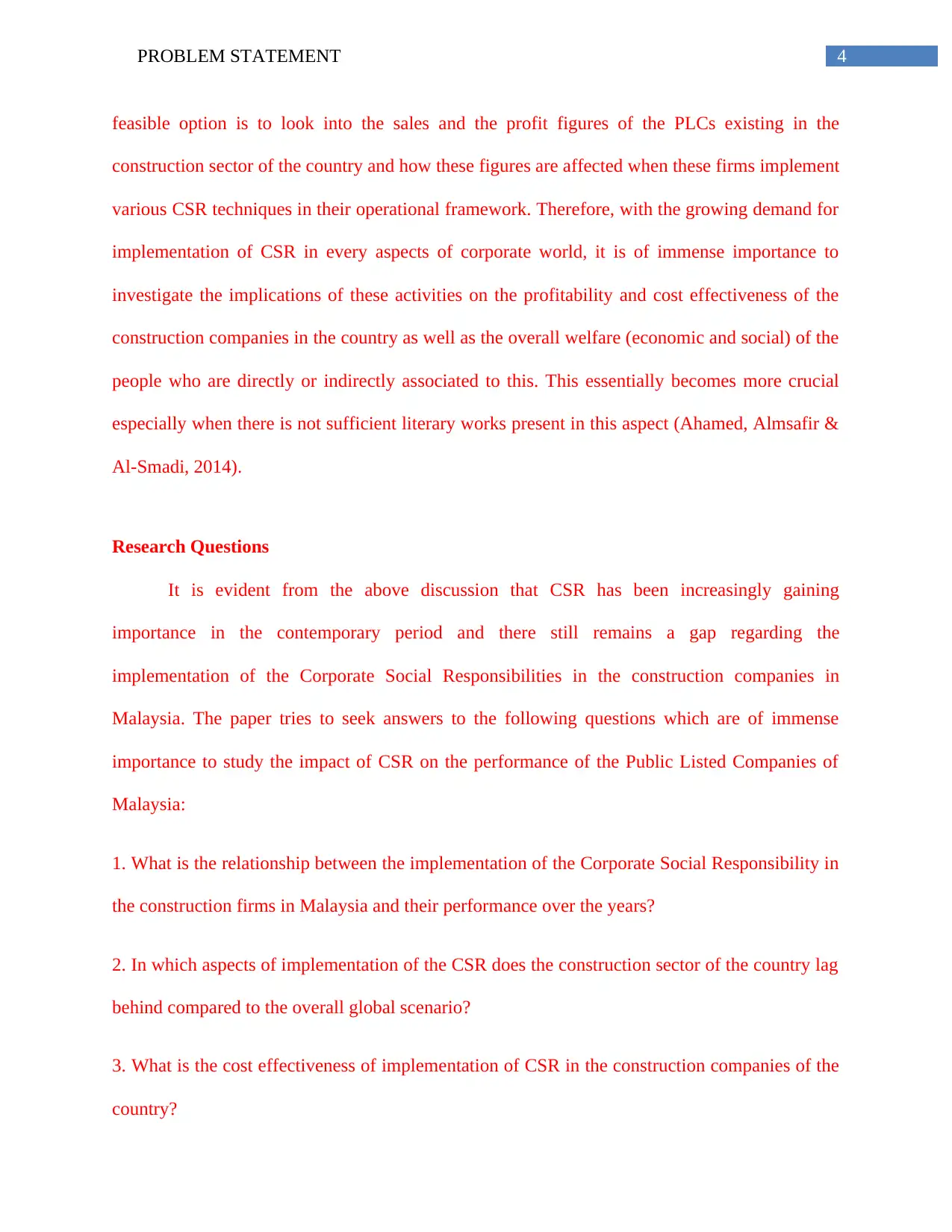
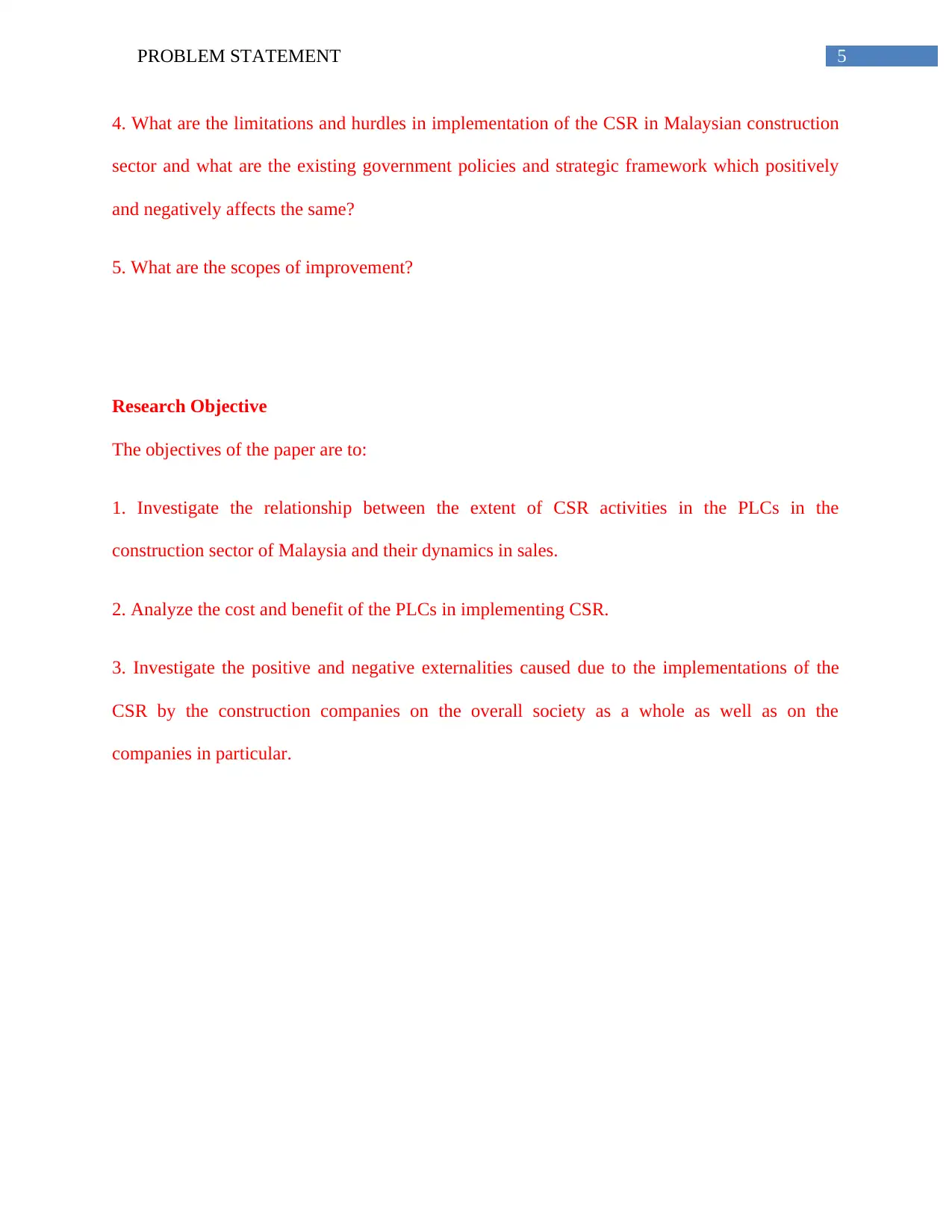
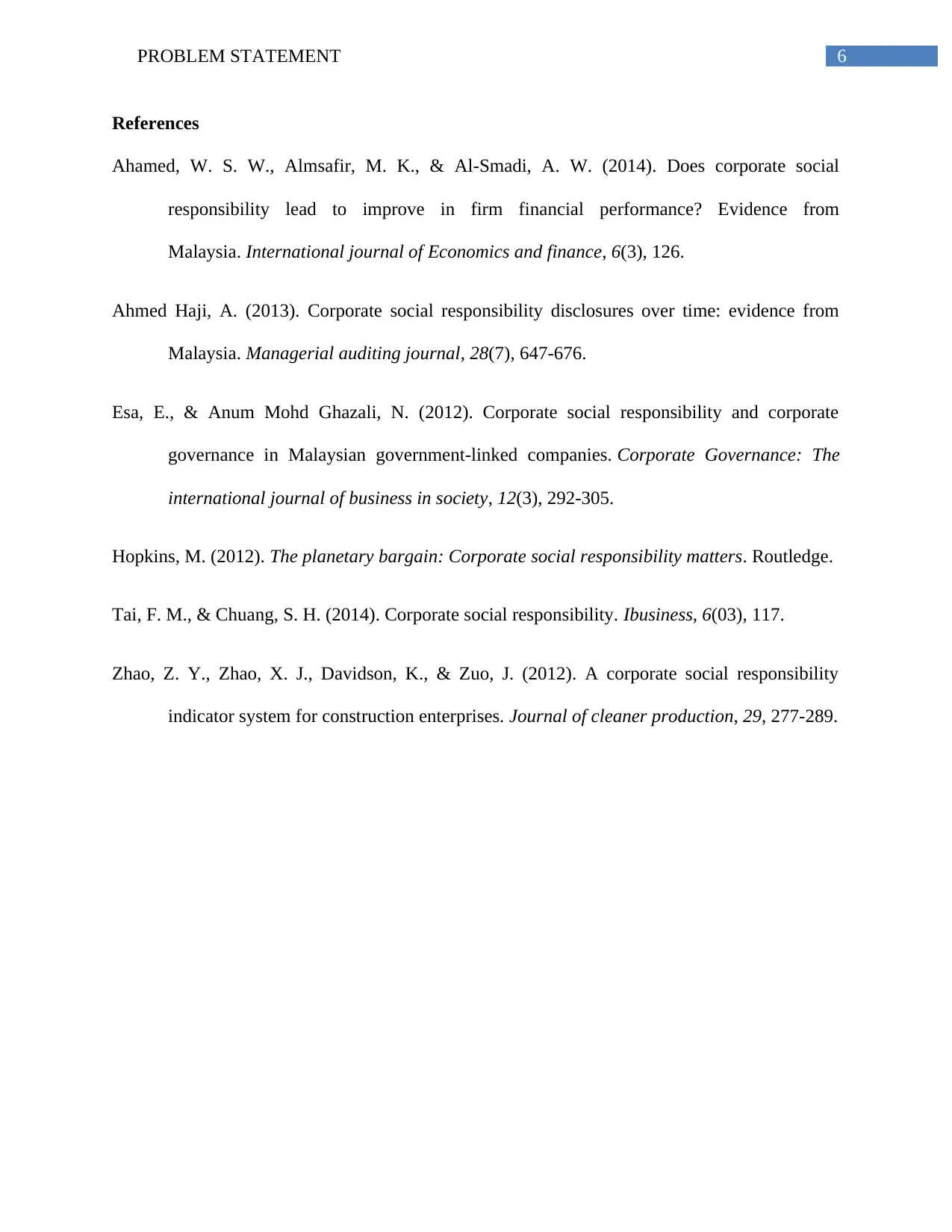






![[object Object]](/_next/static/media/star-bottom.7253800d.svg)